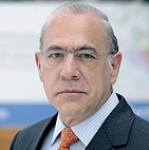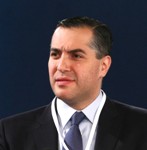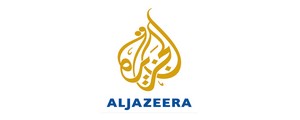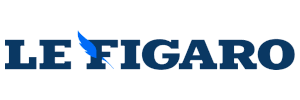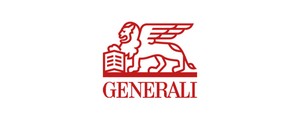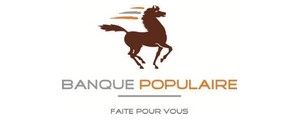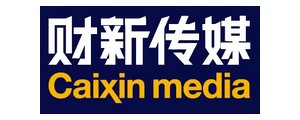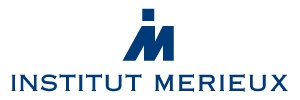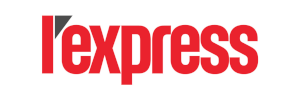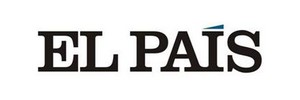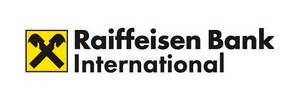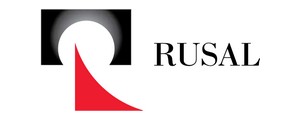OECD Secretary-General. Former Mexico’s Minister of Foreign Affairs and Minister of Finance and Public Credit, Chairman of the International Task Force on Financing Water for all, World Water Council.
Olivier Guillin
Enterprise Director at the Chamber of Commerce French Riviera. Former General Delegate at France Chine 2000, Managing Director at Territoires, consulting firm specializing in economic strategy.
Philippe Bardey
Founder and President of ACRI, company specializing in modeling and study cases on environment.
Dominique Pages
Honorary Consul of the Republic of Kazakhstan, founder of PROMSTAN Asia (Kazakhstan), Founding President of PROMVOST (Russia), Managing Director of PROMEST/COOPINVEST. Former Managing Director of TECHNOFI.
Vladimir Pozdnyakov
Consul General of the Russian Federation in Marseille (France). Former Minister Counsellor at the Embassy of the Russian Federation to France and attaché to the Russian Security Council.
Régine Scapel-Grail
Honorary Consul of the Republic of Mauritius in Marseille (France), laywer at the Bar of Marseille.
Christine Graeff
Director General of the Directorate General Communications and Language Services at the European Central Bank. Former Partner and Managing Director in the Brunswick Group.
Mustapha Adib
Director of the cabinet of the Prime Minister of Lebanon. Professor at the Lebanese University and the Center of Technology of the Lebanese French University, Head of the Center for Middle Eastern Strategic Studies (CESMO).
2008 Themes
1. The United States: what does the world expect from the “indispensable nation” ?
The “unipolar moment” of post-Cold War came to a close but, for the predicable future, the United States still remains the power of reference. On the eve of a presidential elections and after a strong erosion of the soft power of the United States, what should the world expect from the “indispensable nation”? Is the United States ready to reassess its role positively, taking into account the other powers and multilateral organizations in a world becoming multipolar?
2. Russia : domestic developments and external policies
Russia is “back”, in particular because the rising price of hydrocarbons stimulates its economic growth and increases its international leverage. How to stabilize this growth which is excessively reliant on raw materials? Will Russia’s new “cards” determine a new capacity of proposal, and a new approach over spaces involving its strategic interests? What should the world expect from Russia – and through which policies? Conversely, what should Moscow expect from its partners?
3. China: domestic developments and assertion of power
What effects will the economic emergence of China, whether it continues or stops, have on the economies of the area and those of the world at large? More broadly, should the redefinition of equilibrium, on a regional and world scale, be based on China’s assertion of its global power? How can Chinese strategy be made compatible with those of other regional or global actors?
4. Japan: what power, what strategies?
Because of its economy and its military and technological force – and especially because it stands as “a nuclear threshold” country – Japan is a major power, insufficiently considered as such. Tokyo is now readjusting its international surface to the evolution of its society, and the ongoing mutation of regional power struggles, crucially affected mainly by the emergence of China. How must we assess the place of Japan within Asia, whose internal structure and world weight are undergoing a rapid change? Beyond Asia, what does Japan want, and what does the world hope for Japan?
5. India: regional power and/or world actor?
The shape of tomorrow’s multipolarity in great part depends on the structure and modalities of the growth of India. Will India want and manage to play both the cards of economic emergence and those of political power? India will have to redefine its regional relations (China, Pakistan…), and at a more global level, to say what role it intends to play in world affairs and in the elaboration of common rules.
6. Sub-Saharan Africa: implosion or takeoff?
Africa may be viewed both as the continent of hope (economic takeoff in some countries, regional organization, progress of democracy) and as threatened of implosion (crisis of the States, strong inequalities of development, increasing number of domestic conflicts, etc.). What methods could best contribute to develop the cards of the African countries? And what is, what could be the role of outside actors?
7. Is Europe with 27 and more members sustainable?
A European Union with nearly thirty members is inevitably more heterogeneous. The EU will remain, and further expand, but around what projects? Will it have to relinquish the goal of achieving political power? Should the EU become an actor in the new multipolar world? In what sense? Over what geographical areas and foreign policies will this Union be able to be influential?
8. Israel/Palestine, a crucial international issue: what commitments for external actors?
Most international actors agree that the coexistence of both states could bring a solution to the conflict. The urgency of the situation demands putting out of the way opponents to this idea. Is the perpetuation of the status quo not carrying the most dangerous risks? What part, – in ways yet to be defined – can important global or regional actors (first and foremost the United States, but also the Arab states, Russia, EU, UN, NATO…) concretely take to solve this issue?
9. An arc of crisis from Iraq to Pakistan
The Iraqi disaster could lead to the activation of a “Shia arc” and/or to the break-up of the country, the further deterioration of the relations between Western powers and Teheran, internal instability in Pakistan, no clear way out of the war in Afghanistan. All these elements turn the region into a particularly alarming arc of crisis. What internal stabilisation means at political societies level, what regional means of equilibrium can be used? Which actors could help negotiating ways out of the crisis?
10. Which governance for which stability?
The “multilateralism” developed during and after the cold war showed both its merits (arms control and disarmament, NPT, role of UN and the regional security institutions, International Penal Tribunal…) and its limits (crisis management, proliferation…). After a period of systematic “dismantling” of multilateralism, and while new powers emerge, how to conciliate “multipolarity” and “multilateralism”? Which institutions, which procedures are necessary to get towards an organized multipolar world?
11. The economy of knowledge, or education, still deserves an effort
The “economy of knowledge” constitutes a major challenge for the economies on the whole, whether emergent or developed. Few countries have been successful in that matter. Governments encounter many difficulties to achieve their ambition. In Europe, the Lisbon strategy is a failure. How to organize more effectively the efforts in favour of education? Where to focus the effort? Which initiatives to take so that innovation can create new growth opportunities? How to facilitate the adhesion of the social strata to these changes?
12. Credit crisis, financial crisis, economic crisis: what to do?
The current crisis appears to be more serious than those of the last 20 years. Why? Which lesson to draw from the errors done? Did we show an excessive zeal in deregulating? Which initiatives to take to avoid the repetition of this, presumably in new fashion, in the future? What new rules for the financial planet?
13. Regulation of migrations, a world issue
The human migrations South to North, South to South, or within developed countries constitute an important aspect of globalization, badly apprehended and badly controlled. The question is too complex (development issues, internal stability of “exporting” societies, “importing” societies or transit issue…) to be dealt with only at national, or only at international level. A management mode combining domestic and foreign policies, and taking cues from all states, North and South, remains to be invented.
14. Energy and climate: what diplomatic challenges?
Energy has always been an international key stake. This is a question which has reached new dimensions primarily because of the explosion of demand. If the scarcity of resources comes from lack of investments, how to stimulate them? It is necessary to put nuclear power back on the agenda? How to make national interests compatible? In addition, climatic change has become everywhere in the world a declared priority of foreign policy. Which proposals to make in order to create after Bali the “carbon governance” that the planet needs? Will Europe be able, and at what price, to exercise the leadership which it believes it obtained from the agreement of Kyoto?
15. Is the Gulf becoming an arc of hope?
Caught between a spectacular economic development partly based on the rising price of hydrocarbons and the growth of geopolitical and geo-economic risks mainly resulting from its geographic position, the Arabian Gulf Peninsula is at a crossroad. Will it move towards the geography of hope of Asia, with the dream of its many city States of becoming “new Singapore” or will it drift into the geography of tension of the Greater Middle-East?
16. Global food crisis
2009 Themes
I. Political Governance
Globalization has multiplied political units that play a role in the international system and have a capacity to affect it more or less seriously. How to ensure coexistence among these political units? How to make their conflicts manageable in peaceful ways, compatible with the system’s global stability? Two decades after the end of the Cold War, the progressive emergence of a new multipolar world, heterogeneous and global, first suggests the need to evaluate the pertinence of existing institutions at the global and regional levels. What assessment can be given of the mutations of the United Nations and what reforms are needed in order to overcome current blockages – including the blockage of reform itself? How efficient are regional security systems today – systems from which we expected so much in the 1990s – or regional defense groupings? European examples (OSCE, Atlantic Alliance, European Union etc.) as well as African ones (reform of the UA, initiatives for sub-regional groupings) and Asian ones (ASEAN, attempts to build new security forums) all provide the first series of lessons in this respect.
In parallel to the institutions, with their triple functions as forums, norms producers and crisis regulators, other processes play an important role for the resolution of today’s central problems: in particular, weapons proliferation and disarmament. The North Korean and Iranian crises – following the Iraki or Libyan examples – visibly confront non-proliferation measures, be they institutional or not (Non Proliferation Treaty, International Atomic Energy Agency, Proliferation Security Initiative). Similarly, the resumption, after a long hiatus, of disarmament negotiations between Washington and Moscow does not resolve the problem: what role will nuclear arms play tomorrow in the global equilibrium? On what vision of the world will a new NPT have to be based? And what processes must be established to deal effectively with other types of arms (conventional weapons in general, or low caliber murderous ones)?
Beyond the institutions and the processes which must be reinforced or developed, one must also integrate the tools inherited from thinking and experimentation these last few decades. This brings to mind confidence-building measures which are now present universally, whose establishment and development are essential, in particular when it comes to preventive conflict management. As for the methods of crisis management, with the help of strategic cultures and the experience of all the actors who have gotten to know them over the last 20 years, they constitute a promising field for the study of and cooperation between states.
Together, these institutional, political, conceptual approaches will have to combine in a global governance of the international system to organize peaceful yet competitive coexistence to which the society of states aspires.
The topic will be covered during two sessions:
- Architecture of Political Governance
- Security
II. Economic and Financial Governance
The economic and financial crisis has dashed hopes for a tranquil form of globalization that would peacefully promote the expansion of free-markets and democracy. In the face of this crisis, and out of necessity, governments are the first responders. States have made a massive comeback. In a world in which several forms of capitalism seem to be competing, Western values and interests are called into question. Today, globalization appears much more fragile than it was once thought to be. And yet, there is no viable alternative: the failure of globalization would be the worst of all scenarios. The challenges which the world economy must overcome are tremendous: the rise of unemployment, financial uncertainty, a dearth of resources – all of this makes the future unclear, puts the decisions that companies must make into a more uncertain and riskier context and jeopardizes development projects.
Today, the world economy requires a comprehensive form of regulation. In the face of these challenges, the governance of the international system has aged. We are inheriting institutions that reflect the realities of the period that followed World War II, decolonization and the Cold War. They are poorly adapted to a world now marked by the emergence of new powers. The meeting of Heads of State in the G20 format is a hopeful initiative. By tackling financial regulation, it has taken only the first step. It is the next series of steps that we must now imagine and put into practice.
- • Has globalization reached its peak?
- • What are the appropriate budgetary and monetary policies? Do we need a more active international cooperation?
- • What is the appropriate exit strategy and how to put it into practice?
- • How far should we push the harmonization of new financial regulations?
- • How to ensure a better adjustment between savings and investment on a global scale? How to ensure the harmonious evolution of balances of payments?
- • What initiatives could more powerfully push back nationalist and protectionist temptations and stimulate international trade?
- • What could be the consequences of calling into question the anglo-saxon financial capitalism system?
- • What political consequences could derive from economic and social strains? How to confront the risks of economic nationalism?
- • Taking the G20 initiatives further, is there a need for new forms of world governance in the economic and financial domain?
These issues will be discussed during 3 sessions:
- Macro-economic Governance: the efficiency of budgetary policies, non-conventional monetary policies; exit strategies, world trade, economic nationalism; the future of poor countries, movement of capital and exchange rates; international monetary system, governance (G20, IMF etc.)
- Economic and Financial Regulations: banking supervision, the infrastructure of globalization (accounting standards, rating agencies…); a new business model for banks; remittances, governance (G20, Financial Stability Board etc.)
- The future of capitalism: the recasting of the anglo-saxon model; the diversity of models; the creation and distribution of wealth; shareholders and stakeholders; challenges to the middle class; risk aversion and seeking protection; “Animal Spirits” and the intervention of the State; what kind of international cooperation for this new phase of globalization?
III. International Law
For some, the notion of governance has nothing to do with international law, and even with law more generally. It refers to the process of articulation and decision-making among different instances, of different statutes, which cooperate so as to resolve problems of common concern. The G 7, G 8 or G 20 forums, which have been constituted empirically but regularly, partly satisfy this demand. But this remains above all a desire and a need, more than it does a reality. What role could international law play in this context? It would have to satisfy the double dimension of governance. In its regulatory dimension, governance creates norms of sustainable behavior, so as to ensure the security of relations among actors, their mutual trust, the predictability of their behavior, the efficiency of established prescriptions. In it decisional dimension, it must allow to adapt rapidly to change, to react to crises or urgent situations by casting aside ordinary rules, or even modifying them in light of a new durable context.
International law as an instrument of governance’s double dimension
International law governs societies based on a plurality of actors: States. Each one conducts its own policies but they share common interests. Their relations are theoretically not based on a hierarchical structure, but on a horizontal contractual logic, and their interests adjust through negotiation. Their common wish is to preserve their dominant status as legitimate and efficient actors of international regulation, but also as principal actors faced with international crises and situations which call for quick and coherent decisions. In this context, international law offers a number of useful techniques.
International law as a regulatory instrument
In the field of peaceful relations, that of economic and commercial exchanges, the WTO is the last great organizations to have been established after the end of the East-West confrontation. With a light structure and limited power, but with strong ambitions, the WTO rests upon two pillars, adaptation and adjustment – adaptation through agreements which progressively open markets ; and adjustment by resolving the various trade disputes among states, as they pertain to these agreements. How to emerge from the current gridlock ? What lessons should be drawn from the original techniques of conflict resolution for other aspects of international relations?
International law as a mechanism of crisis management
The UN Security Council, which is the principal instance and tool of international crisis management, sanctions juridical inequality among state, resting upon the privileged position of the permanent members. It can take decisions that are binding for all, and make use of constraints. It must respond to crisis situations in a timely manner. It is in keeping with the decisional dimension of governance, since it can cast aside ordinary rules and substitute exceptional measures. It has demonstrated a great ability to adapt in the face of major crises in the last decades, but is often criticized for creating inequality among States though a composition which many deem archaic, and even recused by the United States, which are reluctant to accept the constraints that it seeks to imply. This instrument is not always made sufficient use of. How to reinforce it, adapt it and enhance its efficiency? Would reforming it not bring on its demise?
Legal techniques for global governance
The principles and techniques of international law are indispensable for a balanced and efficient system of global governance.
The absolute primacy of States in international society, their sovereignty and their equality are based on principles of rationality, stability and equilibrium which are indispensable for effective governance. What role for non-State actors? Classical multilateralism calls for a combination of universal participation and an allocation of tasks based on the relative power of states. Lacking an organizing project, it is unable to define a common interest which would transcend the specific requests from the members of a deeply heterogeneous international society. How to contribute to the revival of multilateralism, which is a key of global governance? As for institutional unilateralism, it does not limit itself to the Security Council. It can manifest itself in response to urgent situations and also in response to the need for universal norms, notably in the domain of public health. How to make it more legitimate and effective?
Soft law, or concerted instruments which are not conventional and not legally binding but respected when they are well-balanced and carry mutual trust, is a flexible technique which is well-suited for governance. On the other hand, what role for international jurisdictions which have multiplied over the last several decades, in the political and non judicial process of governance? Can they efficiently handle crises or urgent situations? Can they serve as mainstream regulatory instruments?
IV. Migrations
International cross-border migration is a global challenge to which all States are confronted. In the last 15 years, migration has expanded to reach all regions of the planet. Across the globe, the population of migrants has increased dramatically. The impact of remittances on the economies of migrants’ countries of origin is considerable. Departure points and regions of emigration have also become hubs of transit and arrival. Cross-border migrations have transformed international relations. At the same time, this is a politically loaded topic with much media coverage, which can cloud the assessment of the true issues at stake.
Today, states find themselves in a difficult conundrum. They increasingly consider cross-border migration to be a factor of economic growth and global development; yet they put into place restrictive policies, which have actually proven to be less effective than predicted. In this context, the idea of a world governance for migration has progressively taken hold. It was a matter of reconciling the policy objectives of “Northern” countries, the interests at play on the international marketplace, the development of “Southern” countries and the respect of the rights and security of migrants. Today, does a consensus exist on the diagnosis of the limits of national migratory policies? Would a form of world governance in the area of migration make sense? And if it does, what can the objectives be, and the common means to achieve it? What can be the role of non-state actors, and in particular of companies?
This raises several challenges: how to adapt the national sovereignty of States to the global phenomenon of cross-border migration? A global governance of migration will not be possible without States. Nevertheless, what can be the appropriate institutional and political means to regulate migration? Another decisive question: what is the impact of migrations on North / South relations? Can cross-border migration pave the way to new, more balanced and symmetrical relations between the countries of departure, transit and arrival? What are the real common issues at stake with respect to migration and development? How to solve the dilemma of the “brain drain”? How to foresee the future, and notably the anticipated impact of climate change on migratory flows? Is migration also a global means of regulation for demographic problems in the North as well as in the South? Last challenge: the evolution of national societies in a world of migration. A stronger human mobility should not be accompanied by a rise of xenophobic and racist identities. How to ensure that this is the case?
V. Energy and Climate
The same energy that warms us, lights us and cooks our food is at the center of some of the greatest challenges to mankind. There has never been any question that there is ample clean, reliable energy for every man, woman and child on earth, but many do without. Man’s use of energy has evolved over the millennia, but it is only in the past 150 years that fossil fuels have come to dominate our energy requirements. We extract these fossil fuels from the earth wherever they are found. They are not evenly distributed around the world and create therefore haves and have nots. This has led to competition and aggression between nations and within nations. They are extracted from nature often without due regard for the impact on the global commons or the interests of neighboring populations. Trade in these fuels enriches governments and exporting nations, but depending on the quality of governance in those countries, the wealth generated by fossil fuels can be a source of growth and improving welfare, or it can lead to corruption, autocracy and exclusion. The resource curse has been written about and well studied, but it still ravages many resource rich countries. For the future, which starts now, the burning of vast quantities of fossil fuels is having a discernable negative effect on world climate and will have a catastrophic effect in the next decades if we continue on our present path.
What are the energies of the future and how do we deploy them rapidly enough to forestall insurmountable consequences? What are the carbon trajectories to 2050 for countries in which carbon emissions vary from 44 tons per capita to 0.01 tons per capita? How do we assure that more of the world’s population can have access to clean, reliable, affordable energy? And how do we improve international governance so as to reduce conflicts that take their origin in the uneven distribution of natural energy resources?
The institutions looking for answers to these challenges have not really evolved since the 1960s. They are still basically bimodal, north/south, G-77/Industrialised countries, rich/poor. They still centralize the debates and seek to negotiate consensual outcomes – but anyone can block or bolt. This mode of negotiation hasn’t worked for nearly two decades. What was the last successful multilateral trade negotiation? The Law of the Sea took 14 years and is still not fully ratified. The Energy Charter lacks the US and Russia ratification. The Kyoto Protocol is a stool with two legs.
Foreign Policy editor Moise Naim has suggested replacing multilateralism with minilateralism. Can Kyoto succeed in December in Copenhagen with 180 countries around the table? The same bimodal debates dominate although they are often bimodal for convenience – not conviction. It is defensive multilaterism. Should the debate be moved to or shaped in a smaller forum? There is the G8, the G20 and the Major Economies Forum (MEF) (16 countries). But in all of these, major European states speak with several voices – China and India with one each. Possibly the core of any effective climate change solution is to be found first in a bilateral US/China entente on broad principles – then expanded via the MEF or G20 to the Kyoto Conference of the Parties . Does inclusiveness need to mean paralysis?
The European Community has long practiced subsidiarity. Yet in current multilateralism, countries seek both to establish principles and to identify modalities. This is an overload on heads of state. Once principles are established, implementation and modalities should be split off into subsidiary bodies with the relevant technical competence. Political posturing and defense of the moral high-ground can be kept out of these subsidiary talks.
Climate talks began to take shape in 1988. It is already 20 years later and GHG emissions continue to grow. There remain only 40 years to 2050, a deadline for emissions stabilisation and decline. We cannot afford to lose more time.
VI. Health and the Environment
Health and the environment have gradually imposed themselves as objects of international relations since the 19th century. Epidemics and pollution know no borders, and in their wake human communities find themselves inescapably interdependent. The increasing pace of globalization adds another dimension to this objective interdependence, fostered by the media whose coverage of events puts together and homogenizes the experiences and reactions of different audiences, confronted with a trans-border industrial accident or an influenza epidemic. In the face of this globalization process, political responses to health and environment issues remain partial. New institutions, norms, innovative financing mechanisms have been created, implemented or consolidated at the global level, but taken together, they present the picture of a shapeless global governance network, of a sketchy and uneven texture. How can those emerging forms of governance be improved and empowered to respond to crises and prevent health and environmental risks? Do we need a true formal and centralized governance system – for instance around the WHO, which remains highly decentralized today – or a “World Environment Organization,” which is yet to be created? Or should one rather aim to strengthen the existing fluid framework, which allows for a progressive harmonization of policies through the dissemination of ideas and analyses across different political spheres? And are there other options?
Such questions, relative to the structure of a global governance system, raise other ones, more specific but just as essential. How can we improve the strategic coherence between the many actors of the global health and environmental governance field? How can we consolidate the interest and the mobilization that alone can allow for the pooling of sufficient funding in a period of financial and economic crisis? How can we take care of the less visible, more delicate or more ambitious issues, such as the fight against the pollution of the Global Commons – ocean, space, etc. – the fight against non communicable diseases, the structural reform of health systems? How can we frame the contribution of science to political decision-making, taking into account the uncertainties that come with any form of knowledge? How can we develop equitable processes to allow for a better access to medicine and technological innovation (for example to the technological transfers needed in most developing countries to address climate change)? What balance can and should be established between the protection of trade and economic benefits on one side, and health and the environment, on the other, especially with regards to lessons that could be learned for the management of the new A/H1N1 influenza? How can we ensure that commitments taken by key actors are fulfilled, and how could we palliate to their failures? Should evaluation processes and audits be generalized? Should a health and environmental “responsibility to protect” be adopted? All these questions, some old and some emerging must be addressed to prepare for the future, and for the development of a new global health and environmental governance system or at the very least the refinement of existing options.
VII. Water, Agriculture and Food
Water
Today every human being is entitled to have access to water. There is a universal “quasi-right” to water for all. But, because of exploding and diversifying needs, water, a basic and vital element, traditionally seen as unlimited, is becoming a good in short supply, which must have a price, ruled by economic laws. If one kilo of wheat requires 1000 liters of water, one kilo of meat requires 15000 liters.
Water issues are first of all regional: industrial areas that generate a great deal of pollution, deserts or semi-deserts faced with sudden increases of water consumption (demographic growth, food production, industrialization, urbanization….). Moreover, in many parts of the world (particularly in the case of rivers flowing through several states), the water issue cannot be separated from the main political challenges of the region, affecting questions of peace, security, relations among regional actors. For example, the planning of the Danube river, disputes over the Tigris and Euphrates, the Middle East peace process, the fact that the Nile is shared among ten states, the Sinkiang rivers (Irtysh, Ili)
- • What kinds of regional plans promote more effective water management?
- • Are global rules and institutions needed in this field?
Agriculture and Food
As access to water for all is a universally recognized right, a sufficient and healthy food supply for the whole population belongs to the basic needs which today must be fulfilled by any credible society. Around one billion people suffer from malnutrition (measured as having to live on one dollar or less per day). The so-called new middle classes in emerging countries (In 1990, 1.4 billion people were living on $2-13 per day; this number climbed to 2.6 billion in 2006) remain very dependent on food price fluctuations (in 2008, the striking rise of food prices reminded these people how precarious is their condition).
Food is perceived as a major sign of human inequality, the poor being both underfed and badly fed (huge spread of obesity). More generally, increasingly numerous populations and societies are claiming a balanced diet (a better diet being a way to an improved way of living).
Can food markets be handled like any other market, governed by free and open world competition? Or should agriculture, providing food and survival for human beings, be driven by security priorities, and demanding public intervention (regulations, subsidies, protection)?
Land takes on a role in the global free-for-all. China, South Korea, the United Arab Emirates, Saudi Arabia, Qatar are buying or renting arable grounds on a huge scale in foreign countries.
Ideally a viable global governance in agriculture and food should set up the following goals:
- • To guarantee that no human being is underfed or badly fed.
- • To promote healthy food in the whole world, being strongly aware of the links between food and public health.
- • To monitor a better use of resources (soil, livestock…) within a global framework of sustainable development.
- • To work out some form of international legal protection for land torn among at least three forces: an increasing demand for land; state sovereignty; the seeking of new income by the same states.
2010 Themes
The plenary sessions of the third edition of the World Policy Conference (WPC) will focus on the five following major themes.
1. The problem of the medium- to long-term interaction between demographic trends, climate change and public health challenges. Each of these topics is generally the object of separate in-depth research work and certain specialised international institutions are very concerned about each of them. However, although these three topics make up a whole, they are rarely treated as such. The purpose of the plenary session dedicated to this theme in Marrakech will be to formulate the problem properly and to identify the institutional improvements likely to strengthen world governance within the framework of the overall issue of development.
2. The second plenary session will be dedicated to global monetary and financial governance. Since the start of the financial crisis in 2008, the G20 has been established and measures have been taken, first, to prevent a great depression or, at least, to mitigate the deflationary impact of the crisis, and second, to reduce the likelihood of another recession. This second point is all the more important as the leeway given to governments and central banks is now extremely limited. The aim of this session will be to assess the progress made and to identify the remaining shortcomings. Particular attention may be paid to the lessons that are to be drawn from the euro crisis triggered by the Greek debt crisis.
3. This year, we are introducing a theme of fundamental importance, which has hardly been explored yet: the governance of digital information or, to use the terminology we prefer, the governance of cyberspace. The purpose of this session will be to identify the major challenges of the Internet, such as cybercriminality or digital warfare. We shall also attempt to formulate properly the issue of Internet governance.
4. The ongoing institutionalisation of the G20 poses two problems. First, this new entity may be considered too light for its job and too heavy to do it. We therefore need to think about its future in terms of effectiveness and legitimacy. Second, the emergence of the G20 calls for a review of the overall architecture of global governance and, in particular, a re-assessment of the reform of the United Nations system.
5. The global move towards multipolarity is accelerating year by year. A plenary session will therefore be dedicated to the views of powers such as China, India, Brazil, Turkey and South Africa on the subject of their responsibilities in terms of linking regional and global governance.
6. A sixth plenary session will allow key figures to discuss the issues of current international affairs from the point of view of global governance.
Finally, we plan to hold three workshops, each of which will deal with a fundamental facet of global governance:
- · Energy, raw materials and the environment;
- · Food security and nutrition;
- · Global monetary and financial governance.
The first two workshops will tackle questions of literally vital importance relating to the overall issue of development. The third one will be a natural follow-up to the second plenary session. Each of the plenary sessions and all of the workshops will be introduced by leading figures who occupy high positions of authority or who participate actively in international brainstormings. The interactive debates with participants will be facilitated by journalists and commentators of worldwide repute.
A number of top public figures will also be speaking at extra meetings to be held during the conference.
2011 Themes
After a general introduction, the opening session of the fourth edition of the WPC will focus on the viewpoints, at the highest level, of two key players in the Muslim world: Turkey and Qatar. This will be followed by ten plenary sessions and four workshops.
1. The first session will be organised around the new president of the European Central Bank. The ECB, whose statutes leave little room for interpretation, is subject to pressure from those who would like to see it deployed, at least partially, as a crisis backstop in the euro zone. Germany is resisting such a proposal, while the peoples of Europe become increasingly angry.
2. The second session will be devoted to the “Arab Spring” and its consequences in terms of world governance. Important political figures from the region will take the floor. Economic aspects, notably energy, will also be discussed, as will the comparison, often made in Europe, between the current crisis and previous historic events such as the Fall of the Berlin Wall and the collapse of the Soviet Union between 1989 and 1991.
3. One aspect of the growing interdependency characteristic of globalisation is the increased risk of truly global catastrophes. Nuclear proliferation is an example that is often mentioned, particularly in relation to North Korea and Iran. Another possibility is digital terrorism, which has perhaps been less systematically explored until now. This could be practised by states or small non-state political units. The third session will address these two topics.
4. Contrary to still widely held preconceived ideas, Africa is undergoing thriving development and has abundant resources. On the whole, however, this continent suffers from poor governance, which has significant global consequences. The fourth session will look at this issue.
5. The G8 and especially the G20 have become the two pillars of global political and economic governance. Their efficiency and legitimacy, however, remain controversial. It is therefore natural that each year this subject is taken up by the WPC. This year, it is centred on the main players under the Korean (2010), French (2011) and Mexican (2012) Presidencies.
6. The European Union is a true governance laboratory, on the scale of a continent. Perhaps it could foreshadow the very long-term evolution of global governance. Beyond the current crisis, what lessons can be learned from its experiences? In the sixth session, this issue will be discussed, from various angles, by some major players, both from inside and outside the EU.
7. Globalisation benefits active units all over the world, including terrorists and criminals, adding another dimension to the issue of governance. This will be the topic of the seventh session, based on the experience of India and of the United Nations Office on Drugs and Crime.
8. Even though states are still the principal actors of the international system, they are no longer the only ones. Global companies have responsibilities both at the level of the countries in which they operate, as well as in terms of global governance. This important issue will be explored by two prominent figures, one from the world of politics and the other from the world of business.
9. For unique historical reasons, Israel has a specific role to play on the world stage, the scope and influence of which extends far beyond the Near and Middle East. The Jewish State is therefore a world player, whose vision in terms of global governance is rarely discussed. The ninth session will examine this issue with a very important figure from the Israeli government.
10. The last session will be devoted to an overall debate led by several figures, each of whom has played an important role in recent events. They will try to draw some lessons from the conference and open up new perspectives and possibilities.
The four workshops will look at some of the fundamental, and thus recurring, elements of global governance.
WORKSHOPS
Energy and environment
From a governance perspective, the link between these two issues is increasingly strong, due to climate change and the impact of events such as the Fukushima nuclear power plant disaster. The workshop will look at these issues from the varying perspectives of a large company, an NGO and a specialised rating agency.
Food security
This topic is connected to world population growth, climate change and hazards, changing food habits and market volatility. The debate on the role of states and international organisations in regulating – in the broadest sense – markets has given rise to strong opposition. The topic will be addressed in this workshop by prominent specialists from the private and public sectors.
Health
Public health issues have become an integral part of the problem of global governance, due to the increased mobility of people and goods. The subject will be addressed this year by two major pharmaceutical firms and a public policy generalist.
Global governance and its current state
The aim of this workshop is to exchange overall views on governance, using the data collected by the observatory set up by the Council on Foreign Relations in New York and Washington, as well as the results of the work on this subject by a prominent Singaporean intellectual and two industry leaders operating globally.
2008 Agenda
17:00 – 22:00
Registration and Welcome buffet
09:30 – 10:15
Opening session
Presentation of the World Policy Conference:
Thierry de Montbrial, President and Founder
François Fillon, Prime Minister of the French Republic (speech delivered by Thierry de Montbrial)
10:15 – 12:30
Plenary session
Toomas Hendrik Ilves, President of the Republic of Estonia
Raila Amolo Odinga, Prime Minister of the Republic of Kenya
Hans Gert Pöttering, President of the European Parliament
Jaap de Hoop Scheffer, Secretary-General of NATO
SAR Turki Al Faisal, Chairman of King Faisal Center for Research and Islamic Studies
Mario Monti, President of the Bocconi University of Milan
Moderators: Quentin Peel, The Financial Times
Jim Hoagland, The Washington Post
13:00 – 15:00
Parallel lunch-debates
Lunch 1
World Leaders
Moderator: Thierry de Montbrial
Lunch 2
Kemal Dervis, Administrator of the United Nations Development Programme (UNDP)
Mario Monti, President of the Bocconi University of Milan
Moderator: Jacques Mistral, Director for Economic Studies at Ifri
Lunch 3
Han Sung-Joo, Chairman of the Asian Institute for Policy Studies. Former Foreign Minister of the Republic of Korea
Eberhard Sandschneider, Director of the Research Institute of the German Society for Foreign Policy (DGAP) in Berlin
Yukio Satoh, Former Ambassador to the United Nations. Head of the Japan Institute for International Affairs
Yusuf Wanandi, Co-Founder, Member of the Board of Trustees, and Senior Fellow, Centre for Strategic and International Studies (CSIS) at Jakarta
Moderator: Dominique Moïsi, Senior Advisor at Ifri
15:30 – 17:00
Parallel Workshops
1. United States: what does the world expect from the “indispensable nation”?
Han Sung-Joo, Chairman of the Asian Institute for Policy Studies. Former Foreign Minister of the Republic of Korea
Marshall Goldmann, Professor of Russian Economics (Emeritus) at Wellesley College, Former Associate Director of the Davis Center for Russian Studies at Harvard University
Jim Hoagland, Columnist and Senior Foreign Correspondent for The Washington Post
Dominique Moïsi and Etienne de Durand (Ifri)
Moderator: Vincent Jauvert, Le Nouvel Observateur
2. Japan : what power, what strategies ?
Yukio Satoh, Former Ambassador to the United Nations. Head of the Japan Institute for International Affairs
Igor Ivanov, Former Foreign Minister of Russia
Roderick MacFarquhar, Professor of History and Political Science at Harvard University
Valérie Niquet (Ifri)
3. Is Europe with 27 and more member sustainable?
Arseni Iatseniouk, Chairman of the Verkhovna Rada of Ukraine
Kemal Dervis, Administrator of the United Nations Development Programme (UNDP)
Yusuf Wanandi, Co-Founder, Member of the Board of Trustees, and Senior Fellow, Centre for Strategic and International Studies (CSIS) at Jakarta
Michel Foucher, Former Ambassador to Latvia. Ex-Director of CAP
Hans Stark and Kerry Longhurst (Ifri)
Moderator: Quentin Peel, The Financial Times
4. An arc of crisis from Iraq to Pakistan
Volker Perthes, Director of the German Institute for International and Security Affairs and Chairman and Director of the Board of SWP
Shireen Hunter, Visiting Professor at Georgetown University, Distinguished Scholar at the Center for Strategic and International Studies in Washington, D.C.
Denis Bauchard and Marc Hecker (Ifri)
Moderator: Robert Parsons, France 24
5. Which governance for which stability?
K. Shankar Bajpai, Former India’s Ambassador to Pakistan, China, and the United States, Chairman of the Delhi Policy Group
Sergueï Karaganov, Chairman of the Council on Foreign and Defense Policy. Dean of the School of International Economics and Foreign Affairs, State University – Higher School of Economics (SU-HSE), Moscow
Jean-Marie Guéhenno, French Diplomat, Former United Nations Under-Secretary-General for Peacekeeping Operations
Marie-Christine Dupuis-Danon, International Consultant, Expert in Criminal Finance, Former Expert, Laundering of criminal money, UN Office for Crime Prevention
Philippe Moreau Defarges and Laurence Nardon (Ifri)
Moderator: Bernard Guetta, France Inter
6. The economy of knowledge, or education, still deserves an effort
Bertrand Collomb, Honorary Chairman of Lafarge. Chairman of Board of Directors of Ifri
Jean Pisani-Ferry, Director of Bruegel
Anatoly Torkunov, Rector of the Moscow State Institute of International Relations (MGIMO), Corresponding Member of the Russian Academy of Science
Susanne Nies (Ifri)
Moderator: Natacha Butler, France 24
7. Credit crisis, financial crisis, economic crisis: what to do?
Mario Monti, President of the Bocconi University of Milan
André Lévy-Lang, Administrator of Dexia, Paris-Orléans and Scor.Associated Professor Emeritus at Paris Dauphine University
Gikas A. Hardouvelis, Professor at the University of Piraeus, Chief Economist and Director of Research at EFG Eurobank
Jacques Mistral, Director for Economic Studies at Ifri
François Nicolas and Eliane Mossé (Ifri)
Moderator: John Thornhill, The Financial Times
8. Regulation of migrations, a world issue
Juan Manuel Gomez-Robledo V., Representative of the President of the United Mexican States
Mohammed Bedjaoui, Former Foreign Minister of Algeria
Christophe Bertossi (Ifri)
Moderator: Taoufik Mjaïed, France 24
9. Is the Gold becoming an arc of hope?
SAR Turki Al Faisal, Chairman of King Faisal Center for Research and Islamic Studies
Henry Siegman, Director for the US/Middle East Project
Bassma Kodmani, Director of the Arab Reform Initiative
Khadija Mohsen Finan (Ifri)
Moderator: Christophe Boltanski, Le Nouvel Observateur
20:00 – 22:30
Dinner-debate
Dinner with Pascal Lamy, Director-General of the World Trade Organization
Moderator: Quentin Peel, The Financial Times
10:00 – 12:30
Plenary session
Abdoulaye Wade, President of the Republic of Senegal
Stepan Mesic, President of the Republic of Croatia
Nambaryn Enkhbayar, President of the Republic of Mongolia
SaKong Il, Personal Representative of the President of Republic of Korea
Juan Manuel Gomez-Robledo V., Representative of the President of the United Mexican States
Moderators: Stéphane Paoli, France Inter ; Ulysse Gosset, France 24
13:00 – 15:00
Parallel lunch-debates
Lunch 1
Abdoulaye Wade, President of the Republic of Senegal
Moderator: Lionel Zinsou, Managing Partner of the Private Equity firm PAI
Lunch 2
Nambaryn Enkhbayar, President of the Republic of Mongolia
Moderator: Roderick MacFarquhar, Professor of History and Political Science at Harvard University
Lunch 3
Toomas Hendrik Ilves, President of the Republic of Estonia
Moderator: Dominique Moïsi, Senior Advisor at Ifri
15:30 – 17:00
Workshops and a non plenary roundtable in parallel
Workshops
1. Russia: domestic developments and external policies
Marshall Goldman, Professor of Russian Economics (Emeritus) at Wellesley College, Former Associate Director of the Davis Center for Russian Studies at Harvard University
Sergueï Karaganov, Chairman of the Council on Foreign and Defense Policy. Dean of the School of International Economics and Foreign Affairs, State University – Higher School of Economics (SU-HSE), Moscow
Anatoly Torkunov, Rector of the Moscow State Institute of International Relations (MGIMO), Corresponding Member of the Russian Academy of Science
Thomas Gomart and Adrian Dellecker (Ifri)
Moderator: Bernard Guetta, France Inter
2. China: domestic developments and assertion of power
Yusuf Wanandi, Co-Founder, Member of the Board of Trustees, and Senior Fellow, Centre for Strategic and International Studies (CSIS) at Jakarta
Eberhard Sandschneider, Director of the Research Institute of the German Society for Foreign Policy (DGAP) in Berlin
Roderick MacFarquhar, Professor of History and Political Science at Harvard University
Valérie Niquet (Ifri)
Moderator: Ursula Gauthier, Le Nouvel Observateur
3. India: regional power and/or world actor?
Jean-Luc Racine, Senior Fellow du CNRS au Centre des Etudes de l’Asie du Sud (CEIAS), Ecoles des Hautes Etudes en Sciences Sociales, Paris
Brahma Chellaney, Professor of Security Studies at the New Delhi-based Center for Policy Research
K. Shankar Bajpai, Former India’s Ambassador to Pakistan, China, and the United States, and as Secretary of the Ministry of External Affairs, Chairman of the Delhi Policy Group
Olivier Louis (Ifri)
Moderator: John Thornhill, The Financial Times
4. Sub-Saharan Africa: implosion or takeoff?
James Orengo, MP, Minister for Lands of the Republic Kenya
William Zartman, Jacob Blaustein Professor of International Organizations and Conflict Resolution and Director of Conflict Management at the John Hopkins University
Lionel Zinsou, Managing Partner of the Private Equity firm PAI
Robert Glasser, Secretary General of CARE International
Alain Antil (Ifri)
Moderator: Robert Parsons, France 24
5. Israel/Palestine, a crucial international issue: what commitments for external actors?
Amine Gemayel, Former President of the Lebanese Republic
Henry Siegman, Director for the US/Middle East Project
Shlomo Avineri, Professor of Political Science at Hebrew University of Jerusalem
Sari Nusseibeh, Professor of Islamic Philosophy, President of Al Quds University, Former PLO Representative in Jerusalem
Bassma Kodmani, Executive Director of the Arab Reform Initiative
Dorothée Schmid (Ifri)
Moderator: Jean-Bernad Cadier, France 24
6. Energy and climate: what diplomatic challenges?
Thomas Becker, Deputy Permanent Secretary at the Danish Ministry of Climate and Energy
Bruno Weymuller, Advisor to the Managing Director at Total SA
Bruno Lescoeur, EDF’s Senior vice President for International Businesses
Jacques Lesourne, Former Editor of Le Monde, President of Futurible International
William Ramsay and Maïté Jauréguy-Naudin (Ifri)
Moderator: Natacha Butler, France 24
7. World food crisis
Hervé Gaymard, MP, President of the Regional Council of Savoy, France
François Danel, Director General of Action Contre la Faim
Aline Leboeuf (Ifri)
Moderator: Andrey Zolotov, Founding Editor of Russia Profile Magazine, RIA Novosti
8. Non plenary roundtable
Mohammed Bedjaoui, Former Foreign Minister of Algeria
Han Sung-Joo, Chairman of the Asian Institute for Policy Studies. Former Foreign Minister of the Republic of Korea
Igor Ivanov, Former Foreign Minister of Russia
Hubert Védrine, Former French Foreign Minister
Moderator: Wolfgang Ischinger, German Diplomat. Former Ambassador to the UK and the USA
17:15 – 18:45
Special plenary session on economics
Kemal Dervis, Administrator of the United Nations Development Programme (UNDP)
Jean-Claude Trichet, President of the European Central Bank
Thierry de Montbrial, President and Founder
Moderator: Jacques Mistral, Director for Economic Studies at Ifri
20:00 – 23:00
Official dinner
09:00 – 12:00
Plenary session
Opening session: Thierry de Montbrial
Pascal Couchepin, President of the Swiss Confederation
Boris Tadic, President of the Republic of Serbia
Christophe de Margerie, General Director of Total
Moderators: Jim Hoagland, The Washington Post ; Stéphane Paoli, France Inter
12:00 – 13:15
Closing session
Dmitri Medvedev, President of the Federation of Russia
Nicolas Sarkozy, President of the French Republic
13h30 – 15h30
Parallel lunch-debates
Lunch 1
Stepan Mesic, President of the Republic of Croatia
Moderator: Michel Foucher, Former Ambassador of France to Latvia, Former Director of CAP
Lunch 2
Pascal Couchepin, President of the Swiss Confederation
Moderator: Dominique Moïsi, Senior Advisor at Ifri
Lunch 3
SAR Turki Al Faisal, Chairman of King Faisal Center for Research and Islamic Studies
Christophe de Margerie, General Director of Total
Moderator: Jim Hoagland, The Washington Post
2009 Agenda
19:30
Cocktail
20:30
Dinner debate
Nambaryn Enkhbayar, former President of Mongolia
8:30 – 9:30
Opening session
Reading of the Royal Message from His Majesty King Mohammed VI
Opening Speech by Thierry de Montbrial, President and Founder of the WPC
Message from Kofi Annan, Seventh Secretary-General of the United Nations
9:30 – 11:00
Session 1: “Architecture of Political Governance”
Introducers: Nambaryn Enkhbayar, former President of Mongolia
Han Seung-Soo, former Prime Minister of Republic of Korea
Hubert Védrine, former French Foreign Minister Robert Blackwill, Senior Fellow & Senior Advisor to the President, RAND Corporation; former United States Ambassador to India
Moderator: Steven Erlanger, The New York Times
11:00 – 11:30
Coffee break
11:30 – 12:45
Session 2: “Macro-economic Governance”
Introducers: Fathallah Oualalou, President, Commune urbaine de Rabat, former Finance Minister of Morocco
Arkadi Dvorkovitch, Sherpa to President Dmitry Medvedev
Yoichi Otabe, Deputy Minister for Foreign Affairs, G8 Sherpa, Japan
Wolfgang Munchau, Associate Editor of The Financial Times, Director of Eurointelligence Advisor Limited
Moderator: Jacques Mistral, Head of Economic Research at Ifri
12:45 – 15:00
Lunch debate
Han Seung-Soo, former Prime Minister of Republic of Korea
15:00 – 16:15
Session 3: “The future of capitalism”
Introducers: Lionel Zinsou, Firm’s Chairman and Chief Executive of the Private Equity firm PAI
Tommaso Padoa-Schioppa, former Italian Minister of Economy and Finance
Jeffry Frieden, Professor at Harvard University’s Department of Government
Moderator: Jean-Pierre Elkabbach, President of Lagardère News
16:15 – 16:45
Coffee break
16:45 – 18:15
Session 4: “Energy and Climate”
Introducers: Richard Bradley, Senior Manager for Climate Change and Energy Efficiency at the IEA
Anil Razdan, ormer Power Secretary, Government of India
Manoelle Lepoutre, Director of Sustainable Development and Environment, Total
William Ramsay, Director of the Ifri Energy Program, former Deputy Executive Director of the IEA
Moderator: Alexei Pushkov, Director of the Institute of Contemporary International Problems at the Diplomatic Academy in Moscow
18:15 – 18:45
Mini-session 1: “Migrations”
Introducer: Pierre Morel, Special Representative for Central Asia and for the Crisis in Georgia, EU
Discussant: Jean Paul Guevara Avila, Director-General of Bilateral Relations, Ministry of Foreign Affairs, Plurinational State of Bolivia
20:00 – 22:00
Dinner debate
Jean-David Levitte, Diplomatic Advisor and Sherpa to President Nicolas Sarkozy
9:00 – 10:45
Session 5: “Security”
Yutaka Limura, Special Envoy of the Government of Japan for the Middle East and Europe
Sergei Karaganov, Chairman of the Presidium of the Council on Foreign and Defense Policy in Moscow
Dominique Moïsi, Special Advisor to Ifri
Moderator: Quentin Peel, The Financial Times
10:45 – 11:45
Session 6: “Economic and Financial Regulations”
Introducers: Kemal Dervis, Vice President and Director of Global Economy and Development Program at Brookings Institution, former Turkish Minister for Economic Affairs and Treasury
Nicolas Véron, Research Fellow at Bruegel, Brussels
Moderator: Jacques Mistral, Head of Economic Research at Ifri
11:45 – 12:15
Coffee break
12:15 – 13:30
Session 7: “International law”
Introducers: Celso Lafer, Professor of Philosophy of law at University of São Paolo, former Foreign Minister of Brazil
Serge Sur, Professor at University of Paris II – Panthéon-Assas
Assia Bensalah Alaoui, Ambassador-at-Large, Kingdom of Morocco
Moderator: Philippe Moreau Defarges, Senior Fellow and Co-Director of RAMSES at Ifri
13:30 – 15:30
Lunch debate
Amr Moussa, Secretary-General of the League of Arab States
15:30 – 17:00
Session 8: “Health and Environment”
Introducers: José Angel Cordova Villalobos, Health Minister of the United States of Mexico
Cherif Rahmani, Algerian Minister for Planning, Environment and Tourism
Bruno Lafont, Chairman and CEO of Lafarge
Thomas Wellauer, Head of Corporate Affairs and Executive Member of Novartis
Modérateur : Dominique Moïsi, Special Advisor to Ifri
17:00 – 17:30
Coffee break
17:30 – 18:45
Session 9 : “Water, Agriculture and Food”
Introducers: Michel Camdessus, former Managing Director of the IMF, Honorary Governor of Banque de France
Christian Bréchot, Vice President for Medical Scientific Affairs, Mérieux Alliance
Louise Fresco, Professor, University of Amsterdam
Moderator: Philippe Moreau Defarges, Senior Fellow and Co-Director of RAMSES at Ifri
18:45 – 19:15
Mini-session II : “The role of Regions in Globalization”
Introducer: Jordi Puyol, former President of the Generalitat de Catalunya
Discutant: Moulay Driss Mdaghri, President, Association Marocaine d’Intelligence Economique, AMIE
19:15 – 19:45
Conclusions
Thierry de Montbrial, President and Founder of the WPC
21:00
Gala dinner
Speech 1
Taïeb Fassi Fihri, Minister for Foreign Affairs and Co-operation, Kingdom of Morocco
Speech 2
Michael Posner, Assistant Secretary of State for Democracy, Human Rights and Labor, USA, Founder and President of Human Rights First
Speech 3
Samuel Kaplan, American Ambassador to Morocco
2010 Agenda
19:00
Welcome cocktail
20:30
Dinner-debate
Christophe de Margerie, Chairman and CEO, Total
8:30 – 10:00
Opening session
Reading of the Royal Message
Opening speech by Thierry de Montbrial, President and Founder of the WPC
Speech by Ban Ki-Moon, Secretary-General of the United Nations
11:00 – 11:30
Plenary session 1: “Population, Climate, Health: What Global Governance?”
Introducers: William Reilly, Chairman of the Climate Works Foundation, former Administrator of the United States Environmental Protection Agency
Chris Viehbacher, Chairman and CEO, Sanofi-Aventis
Fernando Alvarez del Rio, Head of the Economic Analysis Unit, Secretariat of Health, Mexico
Jean de Kervasdoué, Professor, CNAM
Moderators: Jean-Pierre Elkabbach, President, Lagardère News
Narendra Taneja, Energy CEO and Convener, World Oil & Gas Assembly
11:30 – 12:00
Coffee break
12:00 – 13:30
Plenary session 2: “Global Monetary and Financial Governance”
Introducers: Jean-Claude Trichet, President, European Central Bank
Haruhiko Kuroda, President, Asian Development, former Special Adviser to the Cabinet of Japanese Prime Minister Junichiro Koizumi
Kemal Dervis, Vice President, Global Economy and Development, Brookings Institution
Moderators: Xavier Vidal-Folch, Deputy Director, El País, President of the World Editors Forum
Jacques Mistral, Head of Economic Studies, Ifri
13:30 – 15:30
Parallel workshops
1. Energy and Environment
Anil Razdan, Chair, former Power Secretary, Government of India
Bruno Lafont, Chairman and CEO, Lafarge
William Ramsay, Director of the Energy Program, Ifri
Qu Xing, President, China Institute for International Studies
Mohammed Tawfik Mouline, General Director, Royal Institute for Strategic Studies
2. Food Security
Philippe Chalmin, Chair, Professor, Paris-Dauphine University, Founder of the Cercle Cyclope
Kairat Umarov, Deputy Minister of Foreign Affairs, Republic of Kazakhstan
Yashwant Thorat, former Chief General and Executive Director, The Reserve Bank of India
3. Global Monetary and Financial Governance
Jacques Mistral, Head of Economic Studies, Ifri
Lionel Zinsou, Chairman and CEO, PAI Partners
Pier Carlo Padoan, Deputy Secretary-General and Chief Economist of the OECD
Gordon Smith, Distinguished Fellow, Centre for International Governance Innovation, Canada
17:30 – 18:00
Coffee break
18:00 – 19:30
Plenary session 3: “Discussion Panel on Current Events”
Introducers: Joaquín Alumnia, Vice President and the Commissioner for Competition in the second college the Barroso Commission
Nambaryn Enkhbayar, former President of Mongolia
Miguel Angel Moratinos, Minister of Foreign Affairs and Cooperation of Spain
Hubert Védrine, former French Foreign Minister
Amir Peretz, Member of Parliament, State of Israel
Konstantin Kosachev, Chairman of the Russian Duma Foreign Affairs Committee
Manuel Hassassian, Ambassador from Palestine to London
Moderators: Dominique Moïsi, Special Adviser to Ifri
Jim Hoagland, Associate Editor and Chief Foreign Correspondent, Washington Post
20:30 – 22:30
Gala Dinner
Amina Benkhadra, Minister of Energy, Mines, Water and Environment
Fu Ying, Vice Minister of Foreign Affairs, People’s Republic of China
09:15 – 09:25
Introduction of the day
Thierry de Montbrial
09:25 – 09:30
Message from Henry Kissinger
09:30 – 10:00
Reports from parallel workshops
1. Energy and Environment
Bruno Lafont, Chairman and CEO, Lafarge
2. Food Security
Philippe Chalmin, Chair, Professor, Paris-Dauphine University, Founder of the Cercle Cyclope
3. Global Monetary and Financial Governance
Lionel Zinsou, Chairman and CEO, PAI Partners
10:00 – 11:15
Plenary session 4: “Governance of the Cyberspace”
Introducers: Nathalie Kosciusko-Morizet, Minister of State for Forward Planning and Development of the Digital Economy
Craig Mundie, Chief Research and Strategy Officer of Microsoft Corp.
François Barrault, Chairman and Founder of FDB Partners SPRL, former CEO of British Telecom Global Services, former Chairman of Lucent EMEA
Moderators: Ulysse Gosset, Journalist, France Télévision
Steven Erlanger, Paris Bureau Chief, New York Times
11:15 – 12:45
Plenary session 5: “French and Korean Views on the G20”
Introducers: Jean-David Levitte, Diplomatic Adviser and Sherpa to President Nicolas Sarkozy
Ahn- Ho-Young, Ambassador-at-large for the G20, Deputy Minister for Trade, Ministry of Foreign Affairs and Trade
Samir Aita, Editor-in-chief of Le Monde diplomatique éditions arabes and President of the Cercle des économistes arabes
12:45 – 15:30
Lunch-debate
With Mo Ibrahim, Founder and Chair of the Mo Ibrahim Foundation, Founder and former Chairman of Celtel International Global Governance and Business
15:30 – 18:00
Free afternoon
18:00 – 19:30
Plenary session 6: “Emerging Powers and Global Governance”
Introducers: Fu Ying, Chinese Vice Minister of Foreign Affairs
Kanwal Sibal, former Foreign Secretary of India
Kemal Dervis, Vice President, Global Economy and Development, Brookings Institution
Stuart Eizenstat, Partner, Convington & Burling LLP
Moderators: Mehmet Ali Birand, Journalist and writer, CNN Türk
Fyodor Lukyanov, Editor-in-chief of the journal Russia in Global Affairs
19:30 – 19:45
Envoi
20:30
Closing dinner
2011 Agenda
15:00 – 16:00
Opening session
Thierry de Montbrial, President and founder of the WPC
Opening speeches
Heinz Fischer, President of the Republic of Austria;
Abdullah Gül, President of the Republic of Turkey, Guest of honor of the 4th edition of the WPC
16:00 – 16:15
Coffee-break
16:15 – 17:00
Plenary session 1: The ECB and the sustainability of the Euro
Chair: Thierry de Montbrial
Speaker: Peter Praet, Member of the ECB’s Executive Board
17:00 – 19:00
Plenary session 2: “Arab spring and global governance”
Chair: Volker Perthes, Chairman and Director of Stiftung Wissenschaft und Politik (SWP)
Speakers: Amr Moussa, former Secretary General of the League of Arab States, candidate to the Egyptian presidential elections;
HRH Prince Turki al-Faisal, Chairman of King Faisal Center for Research and Islamic Studies;
Edward Djerejian, Founding Director of James A. Baker III Institute for Public Policy, former US Ambassador to Syria;
Christophe de Margerie, Chairman & CEO of Total
19:00 – 20:15
Plenary session 3: “Major catastrophes and global governance”
Chair: Jim Hoagland, Associate Editor, Chief Foreign Correspondent of the Washington Post
Speakers: Yukiya Amano, Director General of the IAEA;
Scott Charney, Corporate Vice President, Trustworthy Computing of Microsoft
20:15 – 21:15
Welcome cocktail
21:15 – 23:00
Dinner at the Hofburg Palace (Conference Center)
Herbert Stepic, CEO of Raiffeisen Bank International
09:00 – 10:15
Plenary session 4: “Corporate social responsibility and global governance”
Chair: Bruno Lafont, Chairman and CEO of Lafarge Group
Speakers: Mary Robinson, former President of Ireland, President of Mary Robinson Foundation;
Narayana Murthy, President and founder of Infosys Technologies Limited
10:15 – 10:45
Coffee-break
10:45 – 12:15
Plenary session 5: “The future of the G8 and G20: challenges and prospects for the economic and financial systems”
Chair: Kemal Dervis, Vice-President for Global Economy at the Brookings Institution and Senior Advisor at the Sabanci University; former Minister of Economic Affairs of Turkey
Speakers: Jacob A. Frenkel, Chairman of JPMorgan Chase International, former Governor of the Bank of Israel;
Il Sakong, Presidential Envoy of the Republic of Korea;
Jean-David Levitte, Diplomatic Advisor and Sherpa of President Nicolas Sarkozy;
Lourdes Aranda, Sherpa of Mexico to the G20, Vice Minister of Foreign Affairs of Mexico
12:30 – 14:30
Lunch debate
Kishore Mahbubani, Dean and Professor in the Practice of Public Policy of the Lee Kuan Yew School of Public Policy at the National University of Singapore
14:45 – 15:30
Plenary session 6: “Debriefing of the European Council”
Jean-David Levitte, Diplomatic Advisor and Sherpa of President Nicolas Sarkozy
15:30 – 17:00
Plenary session 7: “Europe as a laboratory for global governance”
Chair: Charles Kupchan, DProfessor in international relations at the Georgetown University
Speakers: Toomas Hendrik Ilves, President of the Republic of Estonia;
Bartholomew 1st, Ecumenical Patriarch of Constantinople;
Fu Ying, Vice Minister of Foreign Affairs of the People’s Republic of China;
Kemal Dervis, Vice-President for Global Economy at the Brookings Institution and Senior Advisor at the Sabanci University; former Minister of Economic Affairs of Turkey
17:00 – 17:30
Coffee-break
17:30 – 19:30
Parallel workshops
1. Energy and environment
Chair: William Ramsay: Senior Advisor of the Center for Energy at Ifri
Speakers: Manoëlle Lepoutre, Executive Vice President, Sustainable Development and Environment of Total;
Paal Frisvold, Chairman of the Board of Bellona Europa asbl;
Kristina Rüter, Research Director of OEKOM research AG
2. Food security
Chair: Mostafa Terrab, Chairman and CEO of OCP Group
Speakers: Louise Fresco, Professor at the University of Amsterdam;
Yashwant Thorat, CEO of the Rajiv Gandhi Trust;
Qu Xing, President of China Institute of International Studies (CIIS)
3. Health
Chair: Jérôme Contamine, Executive Vice-President, Chief Financial Officer, and Member of the Executive Committee of Sanofi-Aventis
Speakers: Petra Laux, Head of Global Public Affairs at Novartis;
Steve Howard, Founding Secretary General of The Global Foundation
4. Global Governance and its current state
Chair: Stewart Patrick, Senior fellow and director of the program on international institutions and global governance at the Council on Foreign Relations (CFR)
Speakers: Sean Cleary, Chairman of Strategic Concepts (Pty) Ltd;
Bruno Lafont, Chairman and CEO of Lafarge Group
20:30
Gala dinner at the Rathaus
Martti Ahtisaari, former President of the Republic of Finland, Nobel Peace Prize 2008
09:00 – 10:00
Reports from parallel workshops
10:00 – 11:15
Plenary session 8: “Development and security”
Chair: Jim Hoagland, Associate Editor, Chief Foreign Correspondent of the Washington Post
Speakers: M.K. Narayanan, Former National Security Advisor of the Prime Minister; Governor of West Bengal of India;
Yury Fedotov, Executive Director of the United Nations Office on Drugs and Crime
11:15 – 11:30
Coffee-break
11:30 – 12:30
Plenary session 9: “Africa”
Chair: Christopher Dickey, Newsweek Magazine
Speakers: Lionel Zinsou, Chairman of PAI Partners;
Jean-Michel Severino, Chairman of Investisseur et Partenaire, member of the French Academy of Technology
12:30 – 14:30
Lunch debate: “Lesson learned: an experience of the Polish-Russian rapprochement”
Anatoly Torkunov, Rector of the Moscow State Institute of International relations, Co-Chairman of the Polish-Russian Group on Difficult Matters;
Adam Daniel Rotfeld, former Foreign Minister of Poland, Co-Chairman of the Polish-Russian Group on Difficult Matters
14:45 – 15:45
Plenary session 10: “Middle East”
Chair: Steven Erlanger, Paris Bureau Chief of the New York Times
Speaker: Ehud Barak, former Prime Minister; Minister of Defense and Deputy Prime Minister of Israel
16:00 – 18:00
Plenary session 11: “General debate”
Chair: Dominique Moïsi, Special Advisor at Ifri
Speakers: Nambaryn Enkhbayar, former President of Mongolia;
Hubert Védrine, former French Minister of Foreign Affairs;
Igor Ivanov, former Russian Minister of Foreign Affairs;
Joschka Fischer, former German Minister of Foreign Affairs;
Robert Badinter, former French Minister of Justice, former President of the Constitutional Council
18:00 – 18:15
Envoi
20:30
Closing dinner
Al Jazeera
Al Jazeera, which means “the Island” or “the Peninsula” in Arabic, referring to the networks status as the only independent news network in the Middle East, is a television network headquartered in Doha, Qatar. Initially launched as an Arabic news and current affairs satellite TV channel with the same name, Al Jazeera has since then expanded into a network with several outlets, including the Internet and specialty TV channels in multiple languages, and in several regions of the world.
Le Figaro
The Figaro Group is a media company working on both paper and digital supports. It is led by Le Figaro, France’s best selling newspaper. It releases weekly magazines focused on investigation journalism, woman-trend and TV news. Lefigaro.fr is France’s leading news website. The group also includes sites dealing with sports, economics, weather forecast or classified advertisement.
Generali
Established in Trieste in 1831, Assicurazioni Generali is the parent company of an international group operative in 64 countries, with key operations concentrated in continental Europe. Over the years, the Group has expanded its operations in Central-Eastern Europe and in Asia and is the 3rd major European insurer.
Crédit populaire du Maroc
The Crédit Populaire du Maroc (CPM) is mainly in charge of fostering the development of all the SMEs, craft, industrial and service companies by the granting of short, medium and long-term loans. It contributes to the deployment of savings, their use in the regions where they are collected and the promotion of local and banking activities.
Russia 24
“Russia 24” Television network is the only Russian information network broadcasting 24 hours a day. The network covers world news and news from Russia’s regions, as well as economic analysis and interviews with highly influential people.
Caixin Media Company
Caixin Media Company Ltd. is a Beijing-based media group dedicated to providing high-quality and authoritative financial and business news and information through periodicals, online, conferences, books, and TV / video programs. Caixin aims to blaze a trail that helps traditional media prosper in the new media age, while distributing comprehensive, in-depth and accurate news and information on various multimedia platforms. Jointly produced by Caixin Media and one of China’s leading think tanks – the China Institute for Reform and Development (CIRD) -, Century Weekly is a nationwide general news magazine published every Monday. It was one of the earliest Chinese magazines approved to chronicle the nation’s era of reform and opening.
Institut Mérieux
Institut Mérieux, the family holding company of Alain Mérieux, comprises 4 companies dedicated to public health such as prevention, diagnostis, prognosis, treatment and clinical follow-up: Bio Mérieux and Transgene in France; Silliker and ABL Inc. in the United States. It employs 10 000 people worldwide.
L’Express
L’Express, the first French newsmagazine has 2,052,000 readers every week. Its website attracts 5.2 million visitors. Born close to 60 years ago, the magazine published regular contributions by Albert Camus, Jean-Paul Sartre, André Malraux, François Mauriac, Françoise Sagan. It remains today at the heart of debates that shape the news.
El País
El País is the leading newspaper in Spanish language. It was born on May 4, 1976, established by a wide group of professionals, intellectuals, journalists and politicians, and it quickly became the most influential and best-selling newspaper in Spain. It currently has an audited circulation of over 400,000 copies and a daily readership of over two million. El País is the global newspaper in Spanish and has its own editions in several European and Latin American capitals. El País has adapted to the new times and is committed to new technologies. Its website, has increased considerably the number of its users.
CNBC
CNBC, First in Business Worldwide, is the leading global broadcaster of live business and financial news and information, reporting directly from the major financial markets around the globe, with three regional networks in Asia, EMEA and the US. In EMEA, CNBC is the only real-time, pan-regional business and financial news network dedicated to CEOs, senior corporate executives, the financial services industry and EMEA investors. The channel is available in more than 130 million homes, 1,400 banks and financial institutions and leading hotels across Europe, the Middle East and Africa. Additionally, CNBC.com gives you access to live streams of all three CNBC regional networks and to the world’s most comprehensive archive of business news videos ever assembled.
The Chosun Ilbo
The Chosun Ilbo is recognized as the most influential daily newspaper in Korea. Its circulation is 2 million per day. It publishes 48~64 pages everyday. Maintaining the No.1 position in newspaper subscriptions and readership for the past decade, it is the most preferred newspaper among opinion leaders. The Chosun Ilbo is also Korea’s first private and national newspaper. Established on March 5, 1920, it was suspended four times during the Japanese colonial period. It overcame these ordeals and strengthened the groundwork for a centennial history.
Raiffeisen Bank International
Raiffeisen Bank International AG (RBI) regards both Austria and Central and Eastern Europe (CEE) as its home market. In CEE, RBI operates an extensive network of financial service providers in 17 markets. RBI is the only Austrian bank with a presence in both the world’s financial centres and in Asia, the group’s further geographical area of focus. In total, around 60,000 employees service about 13.5 million customers through around 3,000 business outlets.
Novartis
Novartis provides innovative healthcare solutions that address the evolving needs of patients and societies. Headquartered in Basel, Switzerland, Novartis offers a diversified portfolio to best meet these needs: innovative medicines, eye care, costsaving generic pharmaceuticals, preventive vaccines and diagnostic tools, over-the-counter and animal health products. Novartis is the only global company with leading positions in these areas. In 2010, the Group’s continuing operations achieved net sales of USD 50.6 billion, while approximately USD 9.1 billion (USD 8.1 billion excluding impairment and amortization charges) was invested in R&D throughout the Group. Novartis Group companies employ approximately 121,000 full-time equivalent associates and operate in more than 140 countries around the world.
RUSAL
UC RUSAL is the world’s largest producer of aluminium, accounting for approximately 10% of global production of aluminium and alumina. RUSAL employs about 76,000 people in 19 countries, across 5 continents. RUSAL markets and sells its products primarily in the European, Asian and North American markets. RUSAL’s ordinary shares are listed on Hong Kong Stock Exchange and global depositary shares representing RUSAL’s ordinary shares are listed on the professional compartment of Euronext Paris.

